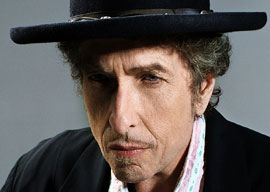December 27th, 2013 at 10:12 am
“…….“We’re Getting More Tolerant”
The problem is that too many posters here don’t see this as good news….”
The problem is that too many posters here don’t see this as good news….”
And why on earth would we Watty:
“In the world it is called Tolerance, but in hell it is called Despair, the sin that believes in nothing, cares for nothing, seeks to know nothing, interferes with nothing, enjoys nothing, hates nothing, finds purpose in nothing, lives for nothing, and remains alive because there is nothing for which it will die.” – Dorothy L. Sayers (1893-1957)
Tolerance isn’t productive. It’s statism for the current generations and degenerative for the next. It’s not a standard, a value[as it holds evrything to the same value] a moral, or even a hope. Tolerance is crap. Immature crap.
It’s for fucken dreamers. Tolerance is ‘utopia’ – where busy bodies in every crook and nanny of society run around telling other people how to behave so they don’t ever ever offend someone.
That can’t end well, but then making sausage meat out of humans never did.
wat dabney (3,149 comments) says:
December 27th, 2013 at 10:19 am
That can’t end well, but then making sausage meat out of humans never did.
wat dabney (3,149 comments) says:
December 27th, 2013 at 10:19 am
Harriet,
You are very confused.
Toleration has nothing inherently to do with the state, it simply means allowing others to pursue their own happiness according to their own lights.
“……Harriet,…..You are very confused…………Toleration has nothing inherently to do with the state, it simply means allowing others to pursue their own happiness according to their own lights…..”
No I’m not.
And stop talking shit. Most drug addicts, and homosexuals too for that matter, could hardly define ‘happiness’ much beyond that of ‘addiction’! 
Anyway, gays got the government to steel from hetrosexuals the most important hetrosexual relationship title that they had: Marriage.
Now it doesn’t exist at all as a hetrosexual title, but a homo/hetrosexual relationship title. The dismanteling of the ‘recognition of an intergenerational pillar that is the foundation of all societies. A biological matter.’.
And all done in the name of tolerance, or in truth, the ‘emotional word ‘equality’.
You are very confused. And the 120 or so in Wellington who voted for it.
“We’re Getting More Tolerant”
That really just means we are getting so apathetic that we don’t stand for anything.
What does it mean to be tolerant or to tolerate something? It means to put up with it. Tolerate your neighbour’s loud music, or tolerate the heat. Tolerate the perversities of your neighbour’s lifestyle – better that than confrontation. The thing is, society is so “tolerant” now that we tolerate perversity rather than kick up a fuss where we should. And the tolerance only goes one way – look at what happened to Duck Dynasty’s Phil Robertson. You’re tolerant as long as you toe the liberal line.
Where are the people tolerant of the Christian lifestyle?
Along with that goes the statistic about less wars. Well, of course! If the West does not stand up for it’s beliefs and traditions, if it bends over backward in submission, of course there will be more ‘peace’ and less war. Even militant Islam believes in peace – once the world is under Sharia law and the infidels and been swayed or suppressed. The same kind of ‘peace’ that North Korea has – the same kind of peace under any dictator.
wat dabney:
“it simply means allowing others to pursue their own happiness according to their own lights.”
This presumably includes pedophiles, rapists etc
‘Tolerance’ is a warm fuzzy word that means absolutely nowt.
Harriet,
The gays stole marriage from straight people?
Do you realise just how stupid you reveal yourself to be with such laughable rants?
“…..The gays stole marriage from straight people?
……Do you realise just how stupid you reveal yourself to be with such laughable rants?…”
……Do you realise just how stupid you reveal yourself to be with such laughable rants?…”
I never said that. And no, it’s not stupid or a rant. It is fact.
I said “the gays got the government to steel the Marriage label off straight people.”
They never asked us. Nearly all said no anyway at the thought of it. They didn’t give us anything in return for taking it.
We don’t have our hetrosexual title anymore. It no longer exists. The government simply took the title off us.
Yes – most people would call it stealing.
-----------
“In the world it is called Tolerance, but in hell it is called Despair…the sin that believes in nothing, cares for nothing, seeks to know nothing, interferes with nothing, enjoys nothing, hates nothing, finds purpose in nothing, lives for nothing, and remains alive because there is nothing for which it will die.” ― Dorothy L. Sayers
People who are tolerant deny what is good, best and truthful.
-----------
“In the world it is called Tolerance, but in hell it is called Despair…the sin that believes in nothing, cares for nothing, seeks to know nothing, interferes with nothing, enjoys nothing, hates nothing, finds purpose in nothing, lives for nothing, and remains alive because there is nothing for which it will die.” ― Dorothy L. Sayers
People who are tolerant deny what is good, best and truthful.





